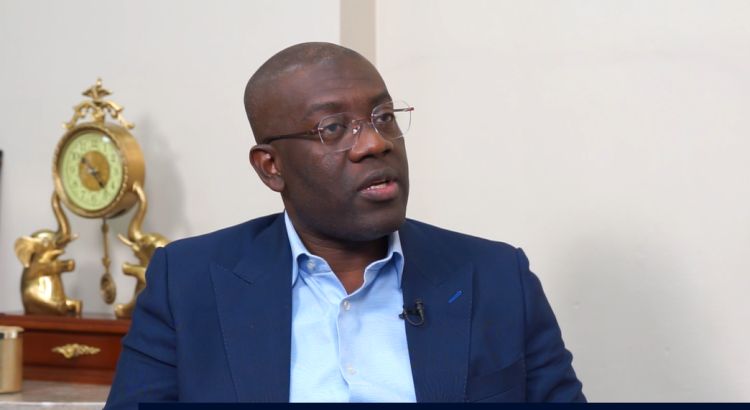Former Information Minister and Ofoase Ayirebi Member of Parliament (MP), Kojo Oppong Nkrumah, has warned that Ghana’s current pace of monetary sterilisation could constrain economic activity and slow job creation if not carefully managed.
Mr. Oppong Nkrumah said the government’s recent decision to absorb large amounts of liquidity from the economy — estimated at GH¢60 billion — risks tightening credit and stifling private sector investment.
Monetary sterilisation is a policy tool used by central banks to withdraw excess liquidity from the financial system, often through the sale of securities or other instruments, to curb inflationary pressures.
According to Mr. Oppong Nkrumah, while such measures can help stabilise prices in the short term, “excessive sterilisation may undermine productive activity and limit the ability of businesses to expand.”
He explained that “the government believes it is mopping up surplus cash to prevent inflation, but that money could also serve as working capital for local manufacturers and SMEs who are already struggling with high interest rates and reduced consumer demand.”

Ghana’s inflation peaked at 54% in late 2022, driven by global price shocks, exchange rate volatility, and fiscal pressures. Under the previous administration — in which Mr. Oppong Nkrumah served — inflation was reduced to around 23% through a combination of tight monetary policy and fiscal adjustments before the 2024 elections.
He acknowledged that the current administration has largely maintained this restrictive stance, but has now intensified liquidity absorption through sterilisation measures by the Bank of Ghana.
Mr. Oppong Nkrumah cautioned that withdrawing too much liquidity could have unintended consequences.
“When GH¢60 billion is taken out of circulation, that money is no longer available to finance trade, industry, or consumption. It may cool inflation, but it can also cool growth,” he explained.
He recommended that policymakers consider “balancing monetary tightening with growth-oriented strategies,” such as targeted lending to productive sectors, to ensure that inflation control efforts do not come at the cost of job creation.
Economic analysts in Ghana have similarly warned that the private sector continues to face limited access to affordable credit. According to data from the Bank of Ghana, average lending rates remain above 30%, posing significant challenges for small and medium-sized enterprises (SMEs) that account for over 70% of Ghana’s employment.

The Ofoase Ayirebi MP emphasised that with inflation now easing, attention should shift to stimulating domestic production, improving access to finance, and supporting entrepreneurship to consolidate the country’s economic recovery.
“We commend the effort to bring inflation down. But now, the focus must be on growth and jobs — ensuring that liquidity supports real economic activity rather than being locked up,” he said.
Mr. Oppong Nkrumah’s comments reflect a broader challenge faced by many African economies seeking to balance price stability with inclusive growth. Countries such as Nigeria and Kenya have also grappled with similar trade-offs between inflation control and liquidity constraints on local businesses.

Analysts note that while monetary discipline is crucial for stabilising currencies and maintaining investor confidence, sustained recovery in Africa’s post-pandemic economies will depend on how effectively governments can transition from austerity measures to policies that encourage production and employment.
As Ghana works to consolidate gains in inflation management, economists and policymakers are debating the next steps — whether to maintain the tight policy stance or pivot toward expansionary measures to support growth.
Oppong Nkrumah’s warning underscores the need for a delicate balance: curbing inflation without choking the very economic activity required to sustain long-term recovery.
Read also: Afenyo-Markin Slams Attorney General’s Media Briefings as Threat to Judicial Integrity
